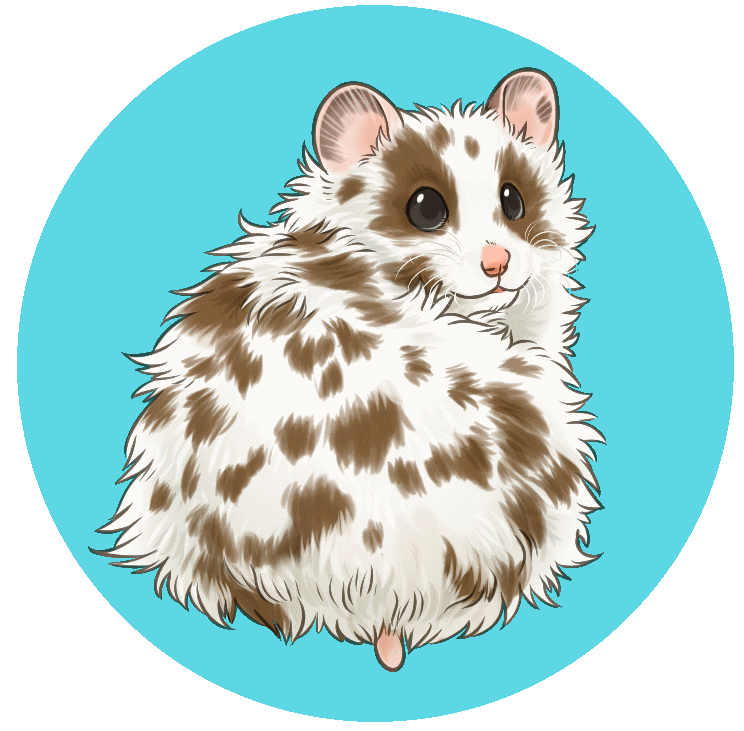Fresh Foods
Fresh foods are part of a healthy diet for hamsters. Remember that quantities should be kept small and variety is important.
Leafy greens can be fed most days in small amounts. Other vegetables can be fed several days a week in small amounts. Fruits can be fed a couple times a week in small quantities. Seeds, nuts and legumes can be fed regularly in small amounts to supplement a hamster’s seed mix. Meats, proteins and insects can be fed in small portions on a regular basis for young hamsters and less often once they are fully grown and reduced even further after a year of age.
~ Leafy Greens and Herbs ~
Please ensure greens have been thoroughly washed prior to feeding
Pesticides can be particularly harmful to small animals
| Arugula | Collard greens | Parsley |
| Basil | Dandelion | Radicchio |
| Beet greens | Dill | Rosemary |
| Bok Choy | Endive | Spinach |
| Cabbage | Kale | Sprouts (such as bean of alfalfa) |
| Chard | Lavender | Thyme |
| Chicory | Lettuce (all except iceberg) | Turnip greens |
| Clover | Microgreens | Watercress |
~ Vegetables ~
Please ensure vegetables have been thoroughly washed prior to feeding
Pesticides can be particularly harmful to small animals
| Artichoke | Cucumber | Pumpkin |
| Asparagus | Edamame | Rhubarb (NO LEAVES) |
| Beets | Green beans | Rutabaga |
| Bell pepper | Jicama | Squash (all varieties) |
| Broccoli | Mushrooms (human safe) | Sweet potatoes (cooked) |
| Brussels sprouts | Okra | Turnips |
| Carrots | Onion | Water Chestnuts |
| Cauliflower | Parsnip | Zucchini |
| Celery | Peas | |
| Corn | Potato (cooked only) |
~ Fruits ~
Please ensure fruits have been thoroughly washed prior to feeding
Pesticides can be particularly harmful to small animals
| Apples | Dates | Oranges |
| Apricot | Dragon fruit | Papaya |
| Avocado (no skin or pit) | Figs | Passion fruit |
| Bananas | Grapes (no seeds) | Peaches (no pit) |
| Blackberries | Guava | Pears |
| Blueberries | Kiwi | Pineapple |
| Boysenberries | Kumquat | Plums/prunes (no pit) |
| Cherries (no pit) | Lychee | Pomegranate |
| Cranberries | Mango (no pit) | Raspberries |
| Coconut | Marionberries | Starfruit |
| Crab apples | Melons (all) | Strawberries |
| Currants | Nectarine (no pit) | Tangerines |
~ Seeds & Nuts ~
Tip: Feed in the shell to entertain your hamster and help grind their teeth
| Almonds (human grade only) | Filberts/Hazelnuts | Pine nuts |
| Brazil nuts | Hemp seeds | Pistachios |
| Canary grass seed | Millet | Pumpkin/Squash seeds |
| Cashews | Milo | Sesame seeds |
| Chia seeds (soaked) | Pecans | Sunflower seeds |
| Flax seeds | Peanuts | Walnuts |
~ Meats & Proteins ~
Meats should be cooked with minimal oil, salt or other seasonings
DO NOT FEED preserved, smoked, processed or canned meats
| Butterworms (head crushed) | Eggs (cooked) | Tempeh |
| Chicken (cooked) | Giant mealworms (heads crushed) | Tofu |
| Cheese (NO moldy or soft varieties) | Lean beef (cooked) | Turkey |
| Cottage Cheese | Mealworms | Waxworms |
| Crickets (freeze dried only) | Salmon (cooked) | Yogurt (no artificial sweetener) |
| Dubia Cockroaches (small) | Superworms (heads crushed) |
Personal opinion on feeding live insects: Wild hamsters eat small animals and insects. I like the idea of providing live insects for them to hunt. I do not recommend catching wild insects to feed to your hamster as they may carry parasites and their safety and nutritional profile is unknown. Feeding live mealworms is controversial as some people are concerned that hamsters might attempt to store a live insect in their cheek pouches. In my experience hamsters instinctually remove the head of the insect first so I only crush or remove the heads of specific insects with large pincers as a safety precaution.
~ Legumes & Grains ~
Can be fed cooked or uncooked, grains in whole form preferable
Flours are to be avoided
| Amaranth | Couscous | Quinoa |
| Barley | Farrow | Rice |
| Beans (no kidney beans) | Lentils | Rye |
| Black eyed peas | Mung beans | Soybeans |
| Buckwheat | Oats | Spelt |
| Bulgar | Pastas | Split Peas |
| Chickpeas | Peanuts | Yeast (brewers and nutritional) |
